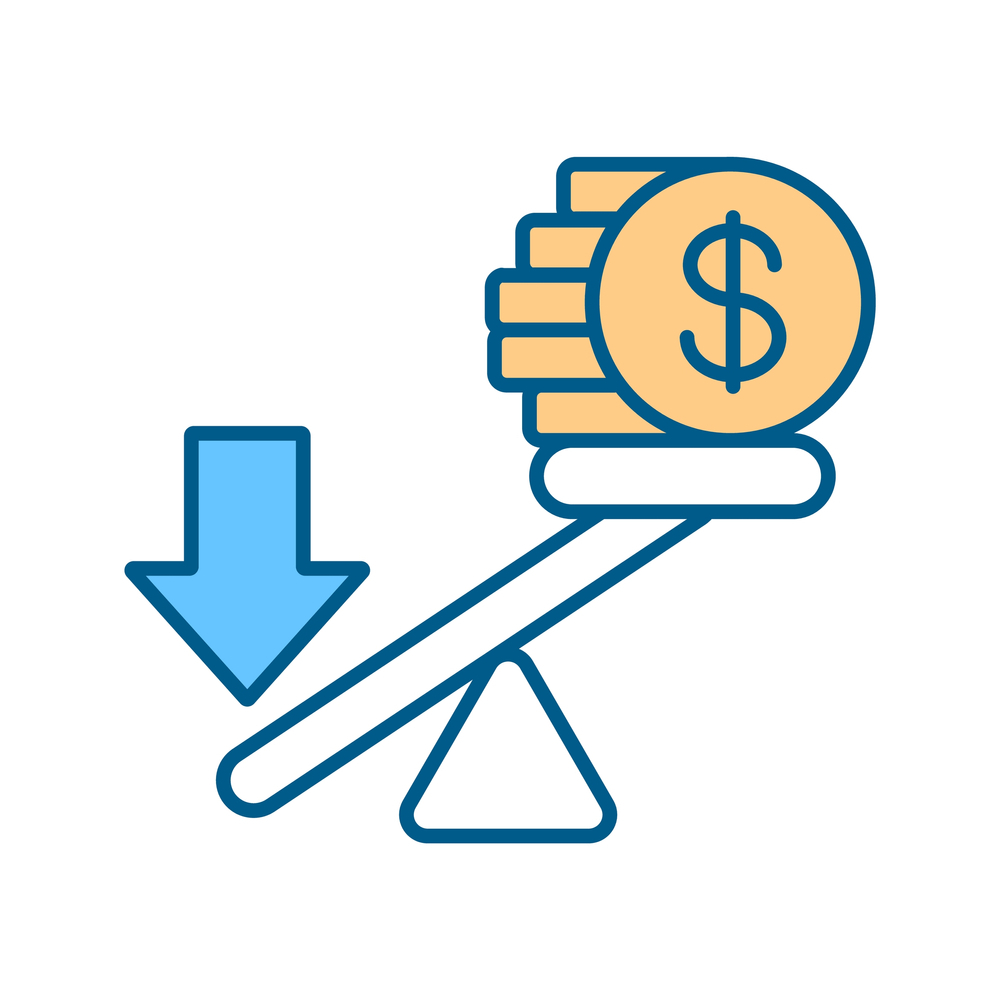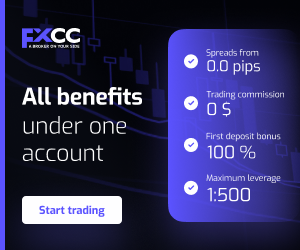How Much money do you need to start Trading Forex?
One of the common questions new traders look for is how much trading capital they need to start trading forex.
Is it millions of dollars, or you can start with $100?
We are going to answer this question in this guide.
So, if you are someone looking to start your trading journey, make sure to stick till the end.
Why size matters?
Before we get into how much money you'll need to trade forex effectively, let's take a look at why this is an issue in the first place. Is it really important whether you open an account with $100 or $5000?
Yes, indeed!
One of the most significant challenges that new traders face is a lack of funds. Forex brokers contribute to this environment by offering no minimum deposit, even though the typical minimum first deposit amount is more than $100.
Let's face it: the reason for someone to start trading is probably to make money. If you start with $100, you won't have much of a revenue stream.
Because very few people are patient enough to let their account grow, they will risk far too much of their capital on each trade in the hopes of making a profit, and in the process, they will lose everything.
We believe that you should only risk 1 - 3% on a single trade. If you have a $100 account, you can only risk $1 - $3 per trade (we'll discuss risk-management strategies later).
This implies that you can open one micro lot position in the forex market, where each pip value would be around ten cents, and you must limit your risk to less than ten pips.
Trading in this manner, in case you have a good strategy, will net you a couple of bucks a day.
While this would steadily increase your account, most traders do not want to make a couple of dollars each day; they want to increase their account much quicker; therefore, they would risk $10 or $20 per trade, sometimes more in order to turn that $100 into thousands as quickly as possible. This may work for a while, but it usually results in a zero-balance account.

The other issue of forex trading with such a tiny amount of funds is that it provides almost little flexibility in the trading strategy you use.
If you deposit $100 and use adequate risk management practices, you can only risk ten pips at a single micro lot position. Whether you want to trade or not, this pushes you to be an active day trader.
You won't be able to trade or invest with the ten pip stop loss because the price can easily move ten pips against you, resulting in a losing trade if you try to hold out for long-term gains.
How much do you need to start trading forex?
Let's try to answer this question in two ways;
First, how much do you need to start short-term trading like scalping and day trading.
Second, how much do you need for long-term trading like swing or position trading.
1. Capital for short-term trading
If you want to start short-term trading like day trading or scalping, you can start with $100. For a slightly more flexibility, $500 can give more income or returns, especially if you are a scalper.
However, $5,000 might be best for day trading because it can help you to achieve a reasonable income that will compensate you for the time you're spending on trading.
With a $5,000 account, you can risk up to $50 per trade, enabling you to make an average profit of $100 or more per day.
This is achievable because, if you risk about ten pips every trade, you may take a position size of about five mini lots ($1 per pip movement), which can either lose $50 or make $75.
Let's keep it real, you won't win every trade, but if you win three out of five, you've made $125 for the day. Some days you make more, while others, you make less.
So, with a $5000 account, you may begin to generate a steady stream of daily revenue. Allowing the account to grow to $10,000 allows you to earn approximately $250 per day.
Remember that this a hypothetical scenario and trading profits or losses depend on many factors.
It's also crucial to understand the forex trading is done and what trades include so you can better measure your losses while making profits.
2. Capital for long-term trading
Swing and position trading is when you hold positions for a longer period. These forex trading strategies are appropriate for people who do not enjoy continuously checking their charts and/or who can only trade in their spare time.
Swing and position trading attempts to capture longer-term moves, which may involve holding positions through some ups and downs before the market reaches your profit target.
Depending on your approach, you'll generally need to risk between 20 and 100 pips per trade for these kinds of strategies.
If you wish to take a trade with a risk of 50 pips, the minimum you can open an account with is $500. This is because you can risk only $5 per trade. If you open a position with a micro lot ($0.10 per pip movement) and lose 50 pips, you will lose $5.
At this pace, it could take some years to build up the account to several thousand dollars.
If you start with $5,000, you can earn $100 to $120 every week, which is more of a steady income. With a $10,000 account, you can easily earn $200 or more a week. Depending on where you live, this can be a sufficient side income.
Again, this a hypothetical scenario and actual trading conditions may look different.
The importance of risk management
It does not matter if you have $100 trading capital or one million dollars; you cannot deny the importance of risk management.
Don't risk more!
Your risk in any trade should never exceed 3% of trading capital. Even better if your risk is 1-2%.
For example, the risk of 1% of the account at $1000 is $10.
This means if you want to open a position, you cannot afford a loss over $10.
Pro tips on trading effectively with a smaller account
We know you are wondering how you can trade effectively with a smaller amount.
So, here are a few tips:
Learn more
We can't stress this enough. Before you start trading with real money, make sure you understand the fundamentals of forex trading, such as risk management and technical analysis. Read in-depth articles on the subject and, if possible, speak with others who have expertise and success in FX trading.
Be patient
If you only have a tiny amount to start with, you will make slow and unsatisfactory progress. However, if you remain consistent and put in the necessary time and work, you should gradually see the benefits.
Control your emotions
It is too easy to be caught up in the excitement of trading and make hasty decisions. To trade forex successfully, you must maintain a clear head, especially if your budget is limited.
Little drops make the ocean
Suppose you have a small account; attempt to invest little amounts weekly while honing your skills and refining your strategies. Investing $5 to $10 a week will allow you to learn the ropes, make mistakes, and lose trades without depleting your capital too much.
These tiny investments will pile up over time, and you will be able to trade larger amounts.
Count in percentage
Viewing your results in percentage gains rather than dollars will assist you in developing a better understanding of how you're performing about your investment.
A $50 gain, for example, may not seem like much, but on a $500 account, it's 10%, which suddenly appears more important. Consider your forex trading to be a business, with long-term trading success more significant than daily or monthly wins and losses.
Be realistic with your profit targets
If you're starting with a small amount of capital, it is unlikely that you will be making large profits in the near future, so don't set yourself unattainable targets that will leave you feeling discouraged.
It is more important to focus on achieving small, consistent profits that will gradually add up as time goes on.
Don’t do it
The forex market is not a casino. Think soberly and prudently. If you aren't confident in your abilities or have not thought through further actions, do not risk capital.
Bottom line
The minimum capital you need to start trading is how much you can afford to trade with; if you can afford to trade $1 million, go for it. On the other hand, if you don't want to start with an astronomical amount, you can start trading with $50.
It all depends on how you want to approach forex trading.
Click on the button below to Download our "How Much money do you need to start Trading Forex?" Guide in PDF

